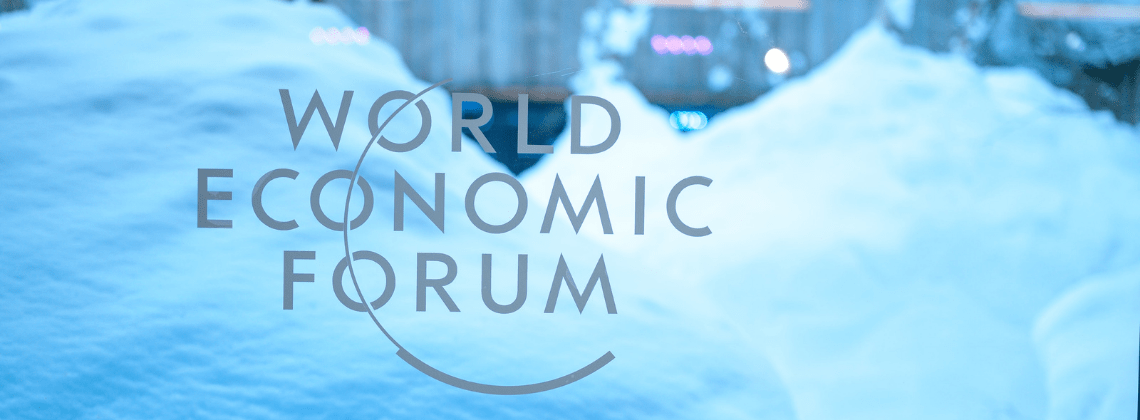News analysis
Davos 2021: Better corporate governance can save the world

Corporate governance and the role companies can play to save the planet were essential topics at Davos 2021.
Davos was established in 1971 in Geneva (Switzerland) and in its first year, 444 executives from European companies met to discuss corporate governance.
Corporate governance was also the main talking point at this year’s event. The thousands who came together online for Davos 2021 discussed the vital relationship between good corporate governance and our collective, future wellbeing.
Traditional corporate governance needs to change
The 51st edition of the World Economic Forum (World Economic Forum, WEF) met online in late January 2021.
Over one week, politicians, business people and representatives of social and cultural organisations discussed this crucial time for the world.
Of those who spoke on corporate governance, all agreed – it is time for the aged, 20th Century way of doing things to be discarded.
Corporate governance has to be refocused. Board members and company directors must now take individual responsibility and be held accountable for their actions.
A new corporate governance framework
The topic of inclusive economies was explored, and a corporate governance framework was proposed that refocus boards, management teams, and investment communities on long-term value creation.
In other words, the planet and its people must come before profits.
Another key theme was that governments could not address global risk drivers as effectively as corporations and NGOs do.
The biggest risk drivers of the early 21st Century global economy are:
- Wealth inequality and polarisation
- Climate change
- Viral pandemics
- Technological change
- Lack of global cooperation
Wealth inequality threatens humanity’s survival
The people of the world are currently living through unprecedented and disruptive times. The pandemic has disrupted our ‘normal’ lives and has caused us to reflect on the enormous inequalities most people face on this planet.
We need to change the old ways of doing things and focus on what’s coming down the line.
For example, without the appropriate re-skilling of workers and proper governance, technology will destroy jobs faster than it can create them.
Governments can no longer provide historical levels of social protection. An anti-establishment narrative has gained traction.
Populist political leaders blame globalisation for society’s challenges. This creates a vicious cycle in which lower economic growth only amplifies inequality.
Cooperation is essential to prevent further economic and social deterioration and social unrest.
The business sector, the private sector, and global governments must work together to tackle social instability.
The future of work involves stakeholder capitalism
At Davos 2021, the World Economic Forum proposed a universal set of ESG indicators.
The WEF discussed how investors and governments might work together to promote stakeholder capitalism.
Keynote speakers and what they said
The following are some of the headline points made by keynote speakers at Davos 2021.
Klaus Schwab, the founder and the executive chairman of the World Economic Forum
- In 2021, global business philosophy will undergo a shift from shareholder capitalism to stakeholder capitalism.
- Revitalising trust is essential for reviving the global economy and re-establishing links between businesses, investors, communities, and governments.
- Investors with ESG criteria control more than a trillion USD.
- No one will be safe until everyone is vaccinated.
- In the past, capitalism usually meant financial capital, but now it increasingly means human and environmental riches.
- The WEF wants to create a universal system for ESG-based assessment and reporting.
Ilham Kadri, CEO, chairman of Solvay SA’s executive committee
- ESG metrics will soon become more important in business reporting and even more important than financial performance reports.
- Sustainable development performance has already become the main factor of market value for a business.
Mohammad Abdullah Al Gergawi, Minister of Cabinet Affairs and Future, the United Arab Emirates
- Every country’s government must be concerned with achieving a balance between public health, economics, and social development.
- The pandemic challenges us all, and we should make global decisions together. For instance, we should not only vaccinate our citizens but ensure that everyone else is also vaccinated.
- The old management model has failed and will not return.
- Vaccination diplomacy will be a new theme in international relations in the future.
Gillian R. Tett. editor, the Financial Times
- People who claimed this was the end of sustainable development or climate change were wrong.
- Corporate media and newsfeeds from corporations are sometimes trusted more than traditional media.
Marc Benioff, chief executive officer, Salesforce.com
- Businesses are actively involved in discovering, producing and distributing the vaccine. Governments did not save us from the pandemic.
- The measure of a corporation’s strength isn’t merely how much it earns, but what it does for society.
Kristalina Georgieva, managing director of the International Monetary Fund
- 2021 will be the year of battles between the mutating virus and vaccines.
- We need more global cooperation from all sectors to help the vaccine win this battle.
- No country’s economy can recover if international cooperation is not re-established.
- The gap between rich and developing countries is widening.
Laurence D. Fink, chief executive officer of investment firm BlackRock Inc.
- Investors today assess projects based on environmental, social, and governance criteria.
- The world needs to invest 50 trillion USD to achieve zero CO2 emissions by 2050.
While those ‘attending’ Davos 2021 discussed many weighty topics, the overriding theme was the role good corporate governance can play to protect the planet, to enrich peoples’ lives and to focus on sustainable profits rather than empty, one dimensional GDP metrics.
